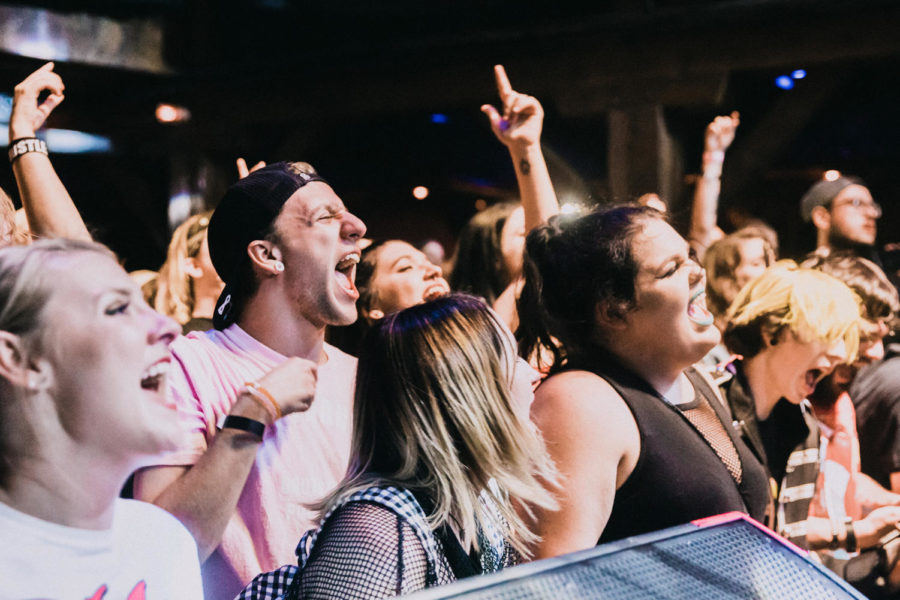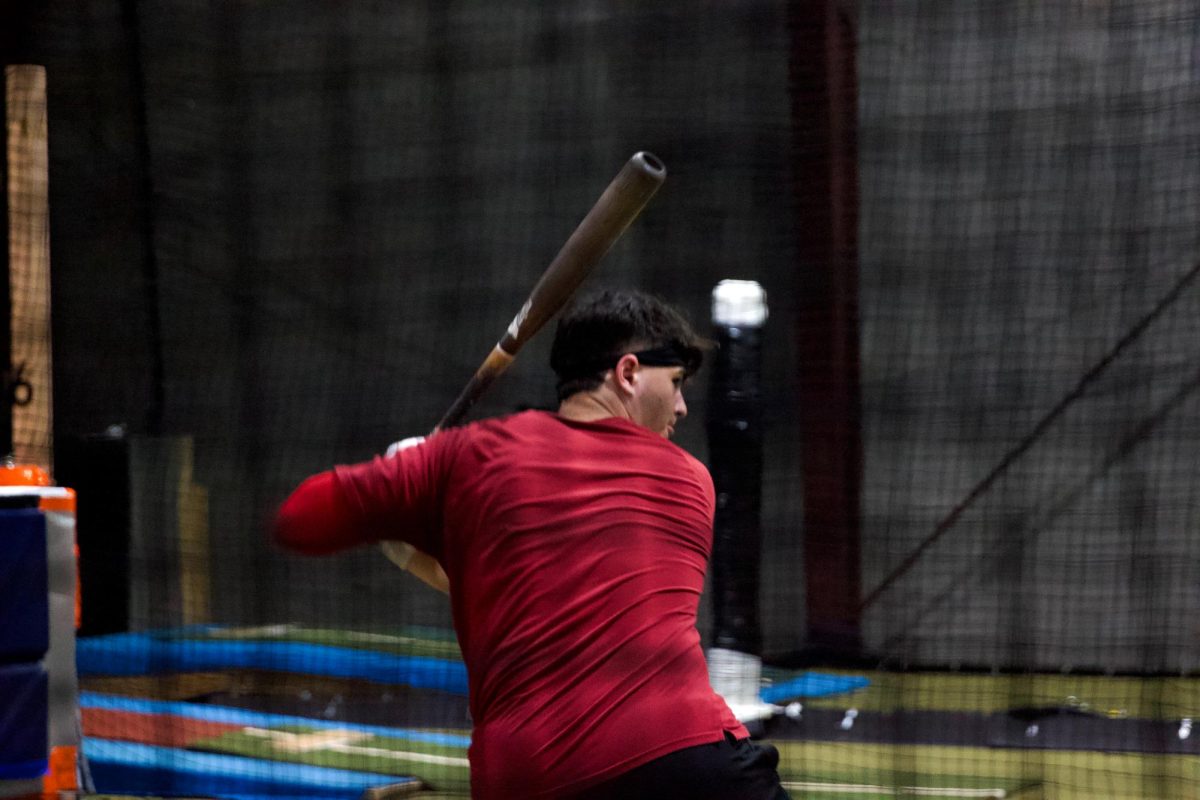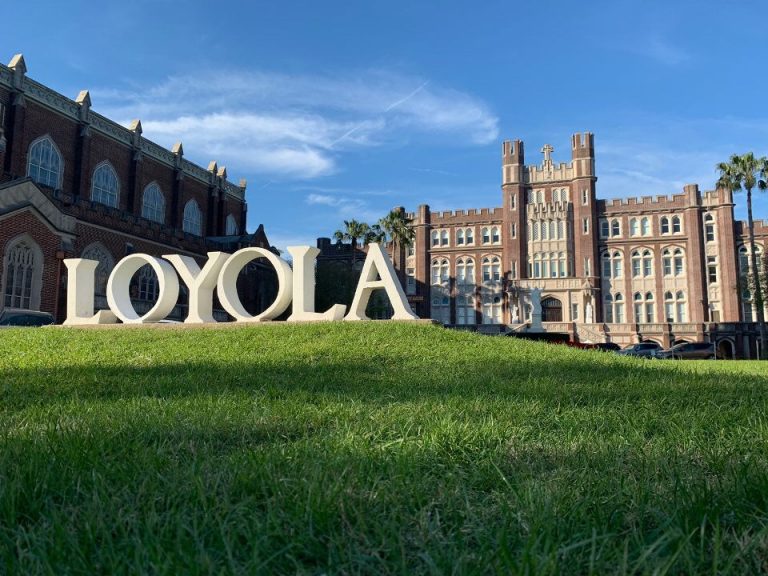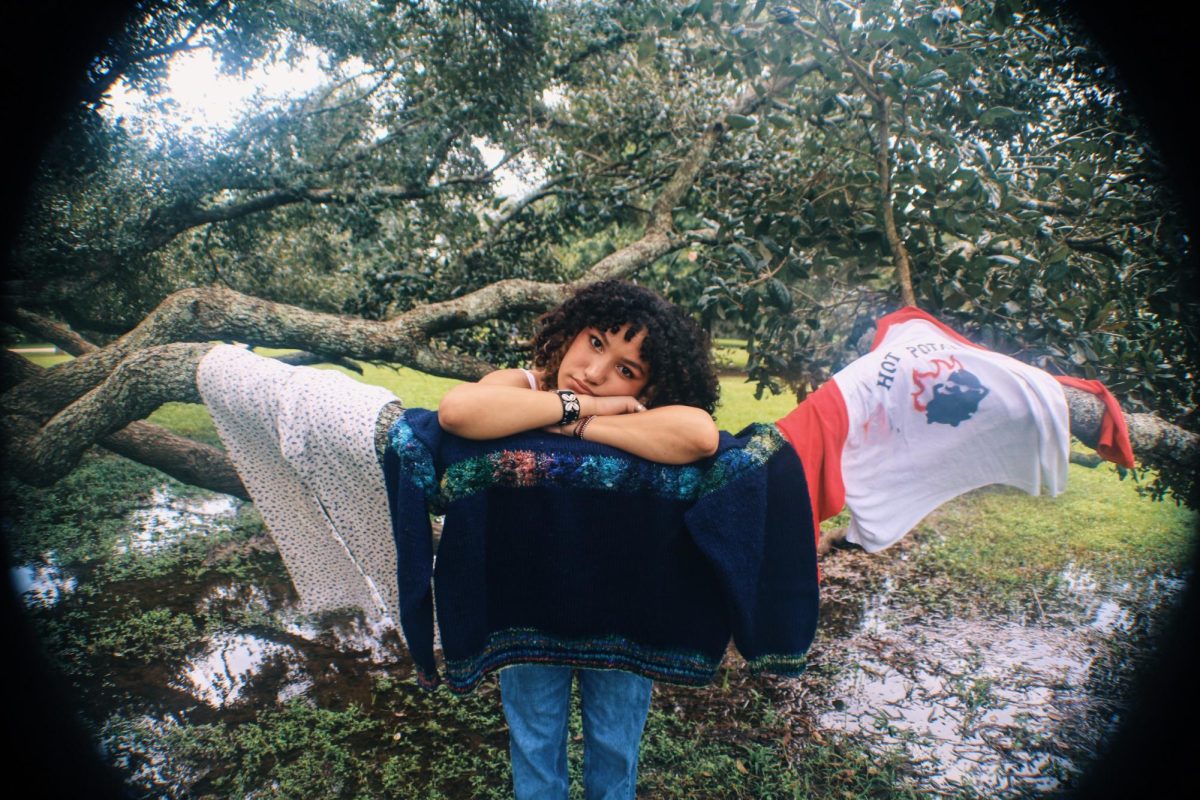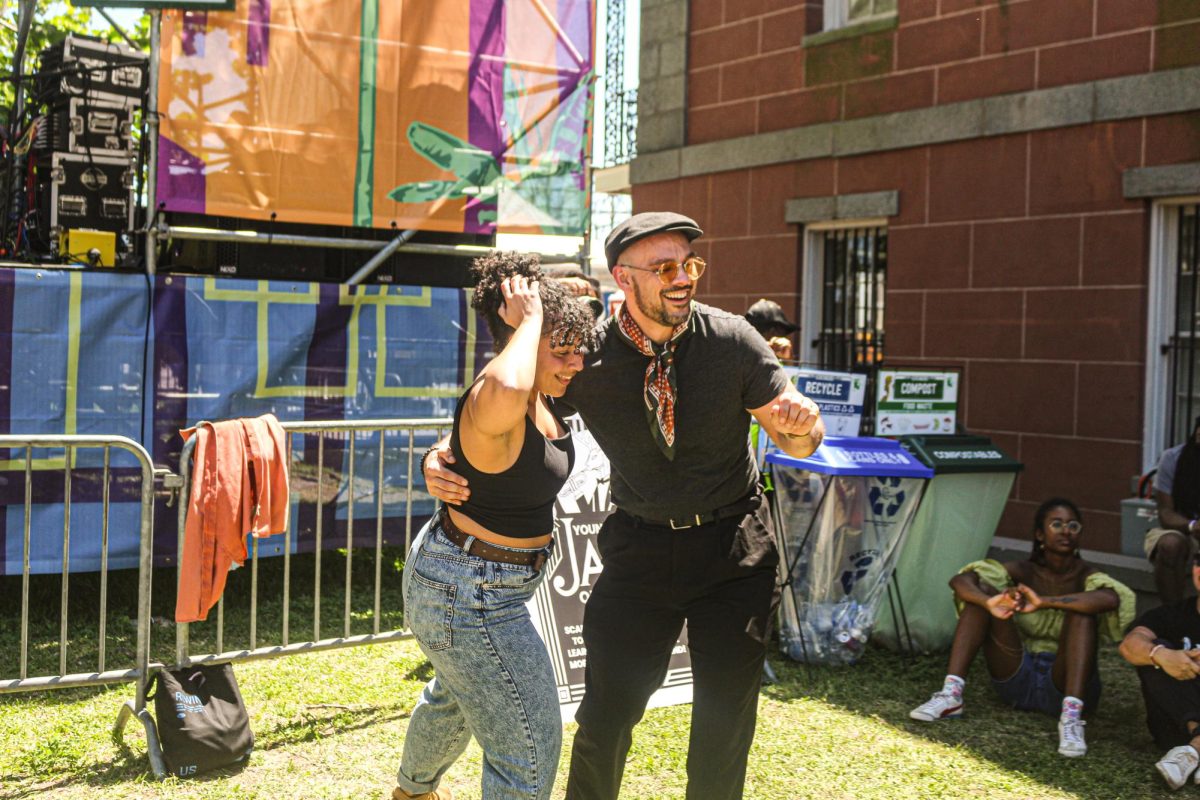Sweaty and slipping in the grease of spilled drinks on the Tipitina’s floor, I screamed FIDLAR’s “40oz. On Repeat” at the top of my lungs. Singing my favorite verse of the song, “I got bills to pay, and I got pills to take,” I started to feel my feet slip out from under me. But, I finished strong, still yelling “Cause I’m born and raised in the USA,” as I collapsed to the ground. Being trampled and at one point kicked in the face by screaming fans, it was probably the closest to a near-death experience I’ll ever have.
But I got back up.
I willingly take on the threat of physical violence that accompanies being in a mosh pit. I’m completely fine being — and honestly expect to be — elbowed and pushed around by the crowd at any alt-rock show. To me, the best kind of concert is one that I emerge from covered in bruises and in the daze of an unmistakable adrenaline high.
Despite my lack of concern for injury and my genuine passion for the music, I always felt left out of the alternative rock community. Something about it was always exclusionary, I seemed to be the other in every crowd. Never being able to put my finger on why, I attributed it to my personal issues with social nervousness and constant overthinking.
For instance, I’m a regular at local emo “throwback” concerts, and “Teenagers” by My Chemical Romance was my anthem at 14. I’ve got the studded belt, the piercings and the checkered Vans.
Still, I never felt like I fit into the scene in a real way, because, of course, outcast status is basically the only qualifier for emo.
So, I put the thought on the back burner because I still liked the music and my punk rock persona didn’t allow for heavy introspection.
But, at this FIDLAR concert, it came to me.
Back on my feet, I saw lead singer Zac Carper signal to his skinny-jeaned, bucket-hatted California skater boy bandmates to stop playing. His voice got quieter, more sincere and as the room creeped to a muttering silence, he said there was something he’d like to address. I assumed nothing that followed would interest me.
I was delightfully mistaken.
Standing with his all-male band, looking out over a sea of men, the singer held the microphone tight, repeating again “I’d like to address something: sexual assault.”
What followed was a heartwarming and socially aware speech about skeevy opportunists who use the jam-packed floors of music venues and mosh pits as hunting grounds. Those whose presence scares women into the back of the crowd, the back of the venue, or out of the alt-rock scene altogether.
His sermon concluded with a reassurance that any woman groped at their concert had full permission to punch her assaulter in the throat, assuring that she would have the band’s backing. Ironically enough, violence isn’t ever really the answer, even at a garage punk concert, but the delighted faces of women in the crowd whose specific struggles for the first time had been recognized in this music scene showed there was appreciation for the gesture.
He then called for a female-only mosh pit, and I knew I was right where I was supposed to be. Finally. I was accepted by a music scene I’d loved for so long, but whose hyper-masculine audience I had feared out of a justified concern that my sex would lead to someone taking advantage of me. It had been on the tip of my tongue the whole time, but I never wanted to admit to myself that a genre and a culture I’d loved so much was overrun by men, to the point where I felt threatened at every concert.
I wasn’t threatened by the possibility of ending up trampled on the venue floor, or by the thrashing limbs of moshers that might inadvertently knock out a tooth. I loved that. My fear came from the people who use the guise of a massive audience as a hunting ground. I realized that I felt like an outsider because while I was in the crowd with my eyes fixed on the stage, there were men in the crowd with their eyes fixed on me, looking me up and down like a piece of meat.
In a sea of people, it’s hard to tell the difference between a man who’s trying to get closer the stage, and one who’s trying to get closer to a woman. But, it’s not impossible. Take for example Sam Carter, lead singer of the British metalcore band Architects. At a concert in August of 2017, Carter witnessed a man grab at the breast of a woman who was crowd surfing and he called it out. In slightly less polite language, Carter dubbed the man disgusting and said, with the entire crowd as his witness, that if he did it again to go ahead and leave the show.
Having witnessed a large man grab my female friend by the waist and throw her out of a mosh pit, heaving a condescending “You’ll get hurt in there, sweetie,” as he tossed her aside, I know there are too many acts of assault which have been normalized. When you’re weaseling through a crowd and a woman stands in your way, you don’t need to place your hand on her ass to move her aside. A simple tap on the shoulder will suffice. When we brush off these smaller acts, it creates a culture in which we so easily turn a blind eye to all assaults, like those similar to that of the Architects crowdsurfer.
In Sweden this past year, the Statement Festival took one approach to addressing this issue by completely banning cisgender men, as both guests and performers, from attending. Though I’ll be the first to admit that the Statement Festival was a rather extreme reaction, I applaud their efforts and it certainly did make a statement.
Still, it’s time to take a deeper look at this phenomenon. There are ways in which everyone can do their fair share in making concerts a safe place for everyone. I know that if I were writing this with the intent that it would change the heart of a future-assaulter my words would be in vain. But for what it’s worth, keep your hands to yourself at concerts. (Really, keep your hands to yourself everywhere, always.) When you’re deep in the crowd everything can be a blur, and in the chaos you don’t know what parts of you are hitting whom and vise versa. That’s not the problem. The fault lies in the few bad apples who use that chaos to inappropriately touch others.
Of course, the problem of sexual assault is not only present at rock concerts. This spans all music genres and kinds of concerts, from packed venues that hold a few hundred people to musical festivals that host thousands. However, alt-rock specifically has for a long time been a boys club. It’s an outdated concept, and one that breeds a horribly unsafe environment for women because their struggles have so often been overlooked by the stereotypically male audience. So, if you see someone making a woman uncomfortable, follow in the footsteps of Carper and Carter and call them out.
In the words of Carter spoken after his heroic act, as quoted from an Independent article: “Let’s keep this going, let’s keep this a f—ing safe place for everybody, and let’s have a f—ing good time.”


